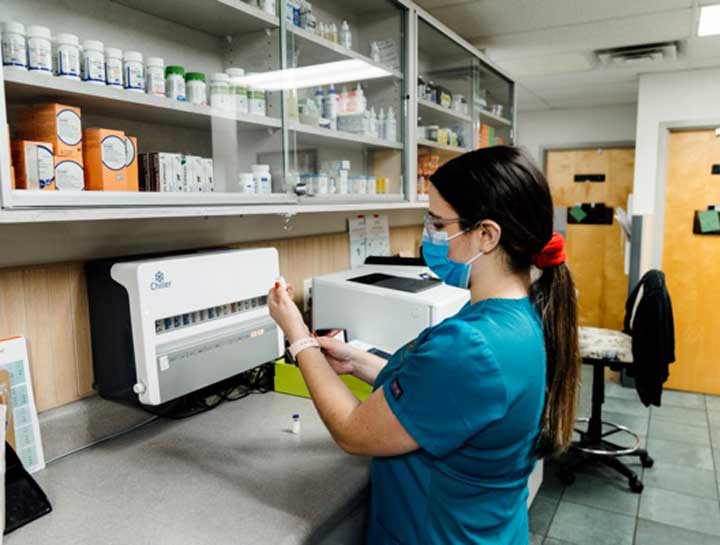Cat & Dog Vaccines
Prepare your pet's body to fight diseases
Northeast Animal Hospital can help prepare your cat’s body to fight common (and not-so-common) diseases that are contagious and deadly. And we can do even more: A Cat Wellness Exam can help us care for the total health of your pet. Please come in, or call us, to learn more.
Here are some other things to know about vaccinations:
- Vaccines have been saving lives for over 200 years, and new vaccines are always in development.
- The risk of side effects from vaccination is far less than the risk posed by the disease itself.
- Possible reactions to a vaccine include swelling and/or redness around the injection site, malaise, loss of appetite, fever, diarrhea, vomiting, or lameness.
- If your pet has a history of reactions to vaccination, you may wait at least 30 minutes in the hospital’s reception area after treatment, in case any immediate reaction occurs.
- If you think your pet is having an adverse reaction to a vaccine, please call your veterinarian right away.
What vaccinations will you provide my cat?
Administering vaccines to cats not only help better the health of the feline, but also to the humans surrounding this animal as well. In some instances, some diseases are likely to spread to humans, like:
- Feline Distemper and Respiratory Disease
- Feline Leukemia (if needed)
- Rabies
At Northeast Animal Hospital our core vaccinations for felines include those against rabies, feline distemper (panleukopenia), and respiratory disease (rhinotracheitis and calicivirus).
Recommended Vaccines for Dogs
Having routine exams and vaccines help better the health of dogs of every age, size and breed. With a multitude if available vaccines in the United States, it can be hard to determine what are the best vaccinations to pursue. By speaking with an experienced veterinarian at Northeast Animal Hospital, pet parents can expect to learn more about common vaccines to prevent:
- Canine Distemper, Respiratory Disease, Hepatitis, Parvovirus
- Canine Influenza (H3N2/H3N8)
- Kennel Cough
- Leptospirosis
- Lyme Disease ; and
- Rabies
Core vaccinations for dogs include canine distemper (paramyxovirus), canine hepatitis, respiratory disease (adenovirus 2), canine parvovirus, and rabies. These vaccinations are recommended for all dogs. Schedules for various vaccinations vary according to the vaccine and the age of your dog. But after initial treatments through the puppy stage, re-vaccinations are generally scheduled every 1 to 3 years.
Please call us if you have any questions about your pet’s vaccinations.
Northeast (727) 822-8501 | Downtown (727) 755-7387

